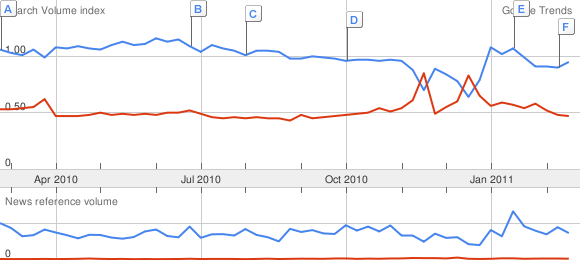Change the players, or change the game
Yesterday on Forrester CEO George Colony's blog, in a piece titled CEO's Want Better Sales Forces, Colony shared some observations from tech company CEO's about the relative effectiveness (or ineffectiveness) of their sales forces.
Some of the complaints that these CEO's cited were speed, sales reps were lagging business strategy; selling too low, i.e. reps not connecting high enough in the buyer's organization to reach the decision makers; and inability to articulate the product/service value proposition effectively, and therefore selling mainly on price.
I suspect these CEO gripes about their sales forces, while real, are not that much different than what CEO's 10, 20, or even 50 years ago may have expressed. A sales rep having trouble making contact with the buy side person with authority to sign off on the purchase has been an issue in B2B sales pretty much forever.
The post continues to share some of the remedies that the CEO's Colony talked with are planning to attempt to improve the performance of their sales forces. Strategies like improving the technology available to sales reps, hiring 'smarter' people in sales, and urging the sales teams to get 'more customer focused'. Again, these seem like the same kinds of sales improvement strategies CEO's would have pursued any time in the last few decades.
But the reason I wanted to mention this piece was not the content of the post really, since it is kind of obvious, but rather a bit of wisdom shared by one of the commenters, Walter. From his comment:
The biggest new wave is that salespeople are simply not needed in the same way as before, and not at the same points in the cycle, as they were due to the social web and the information available. The buyer's cycle has changed faster than the seller's cycle.
The idea is that the 'game', the process if you will, has changed so much on the buy side that simply tweaking and fine tuning your existing sales processes, (and really your entire marketing, communications, and support as well), will not be sufficient to meet the challenges and the demands presented by buyers that are moving much, much faster than most selling organizations have been able to move.
The key question is - can you survive by simply getting incrementally better at playing the game you have been playing forever, or will you have to more radically alter the way you educate, qualify, and sell; with the full realization that the game you are playing is likely an entirely new one.
You can change or improve the players, or you can change the game. Knowing how to make that call is the tricky part.

 Steve
Steve


